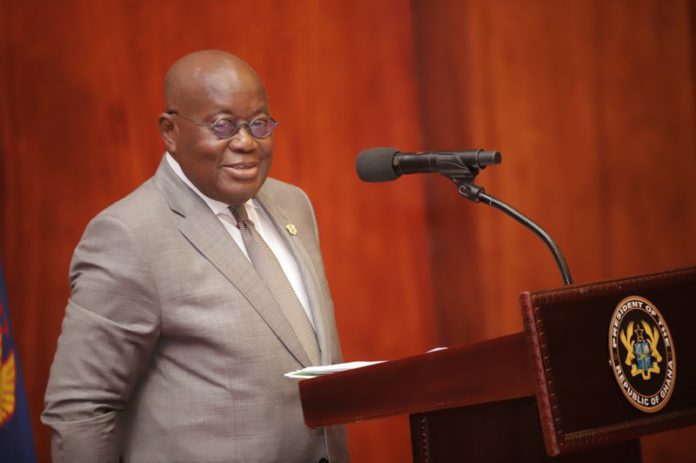President Akufo-Addo has pointed out the pivotal role that female judges play in eliminating undesirable cultural practices, particularly among women and girls, that impede their development.
He said the experience of female judges places them in a prime position to lend distinct perspectives and strengths to the cause of Justice and equity.
“Women judges across Africa and the globe bring unique viewpoints and strengths to the judiciary. Their experiences, often mirroring the societal challenges we seek to overcome, equip them uniquely to advocate for justice and fairness.”
The President was speaking at the opening of the 18th International Association of Women Judges (IAWJ) Conference in Accra on Monday.
The three-day conference aims to capitalize on previous successes and take advantage of the IAWJ’s unique position in bringing together judicial officers from around the world to discuss matters of mutual importance.
it is on the theme “Combating Negative Cultural Practices in Contemporary Times – The Role of Women Judges.”
President Akufo-Addo noted that having women at all levels of the judicial system across the continent not only increases respect for the judiciary but also fosters confidence in the justice delivery system.
He said the theme of the conference was a call to every member of the judicial system, particularly women judges, to “leverage our collective legal acumen to dismantle barriers to justice.”
The President noted that negative cultural practices were not just an affront to the victims but were “a blemish on our collective human conscience.”
“As judges and upholders of the law, you have the power to redefine norms and set precedents that protect the vulnerable and marginalised,” he said.
“In dealing with issues like gender-based violence, child marriage, widowhood rites and female genital mutilation – practices steeped in deep-rooted cultural norms – your voices and rulings can resonate deeply, driving societal transformation.”
“It is imperative to acknowledge that the fight against these practices is not confined to the courtrooms. Education, awareness, and collaborative governance are critical.
“We must engage traditional leaders, educators, and communities to recalibrate mindsets and attitudes. It is in our schools, homes, and community gatherings where the foundational beliefs of our next generation are formed,” he said.
President Akufo-Addo urged female judges to uphold the ideals of fairness, equality, and justice in all their decisions to combat detrimental cultural traditions.
“Let them (judgements) be a beacon for those in the shadows of fear and oppression. Remember, each decision you make not only affects the individual in your courtroom but also sets a tone for what we, as a society, deem acceptable.
“As we look towards the future, let us envision a continent where the law does not only punish but also educates and reforms.
“A future where our daughters will be judged not by their compliance with outdated customs, but by their potential to lead and innovate. In this grand vision, women judges stand not just as enforcers of the law, but also as architects of societal change,” he charged.
The IAWJ is a non-profit non-governmental organization founded in 1991 whose members are judges from around the world.
It supports and empowers its global network of women judges to advance gender equality, end discriminatory laws, and promote and human rights for all.

